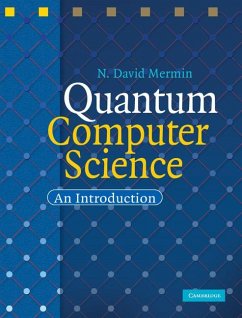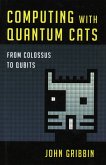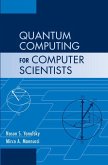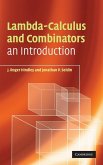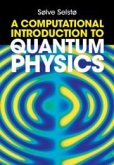Quantum physics has some spectacular applications in computer science, and this book is a concise introduction to quantum computation. It develops the basic elements of computational theory without assuming any background in physics, and so is ideal for computer scientists who know nothing about quantum theory.
Hinweis: Dieser Artikel kann nur an eine deutsche Lieferadresse ausgeliefert werden.
Hinweis: Dieser Artikel kann nur an eine deutsche Lieferadresse ausgeliefert werden.
'This is one of the finest books in the rapidly growing field of quantum information. Almost every page contains a unique insight or a novel interpretation. David Mermin has once again demonstrated his legendary pedagogical skills to produce a classic.' Lov Grover, Bell Labs
Prepublication praise: '… Mermin's lucid prose and gentle humor cajole [students] toward a sound intuition for what it all means, not an easy task for a subject superficially so counterintuitive.' Charles Bennett, IBM T. J. Watson Research Center

